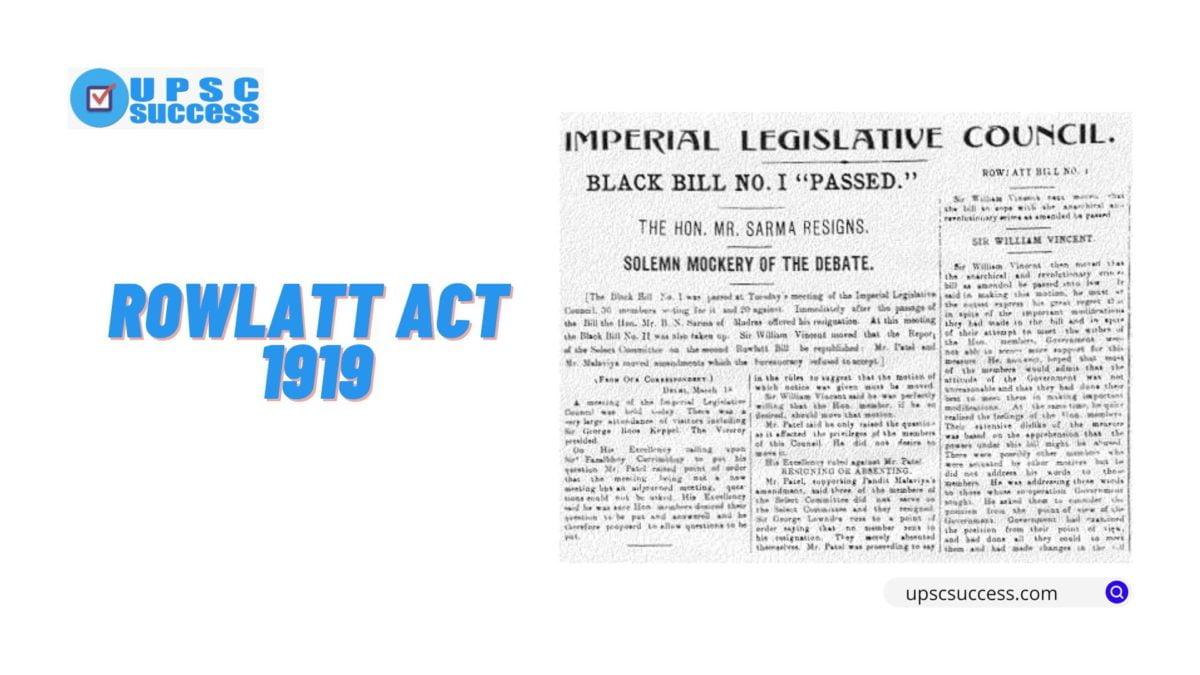It was officially called the Anarchical and Revolutionary Crimes Act, but is popularly known as the Rowlatt Act.
It was based on the recommendations made by the Rowlatt Commission to investigate the ‘seditious conspiracy’ of the Indian people.
The committee had recommended that activists should be deported or imprisoned without trial for two years and that even possession of seditious newspapers would be adequate evidence of guilt.
Mahatma Gandhi called the Rowlatt Act the “Black Act”.
Gandhi organized a Satyagraha Sabha.
The forms of protest finally chosen included observance of a nationwide hartal (strike) accompanied by fasting and prayer, civil disobedience against specific laws, and courting arrest and imprisonment.
FAQs
Rowlatt Acts, (February 1919), legislation passed by the Imperial Legislative Council, the legislature of British India. The acts allowed certain political cases to be tried without juries and permitted the internment of suspects without trial.
The Act was passed by the Rowlatt Committee, presided by Sir Sydney Rowlatt. It authorized the arrest, for 2 years without trial, of any person suspected of terrorism living in British India.
The purpose of the Act was to curb the growing nationalist upsurge in the country.
The Rowlatt Act came to be repealed in 1922.

